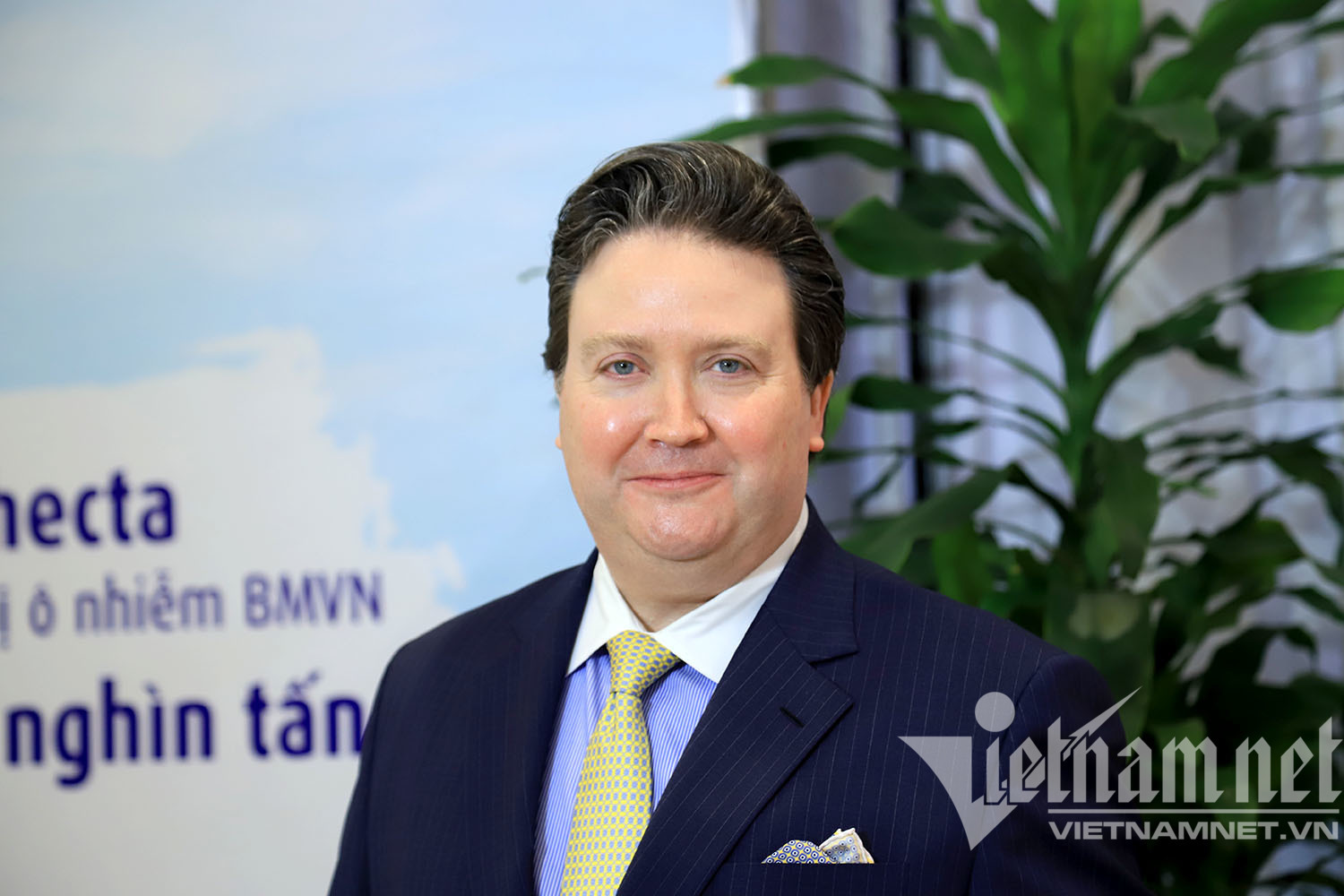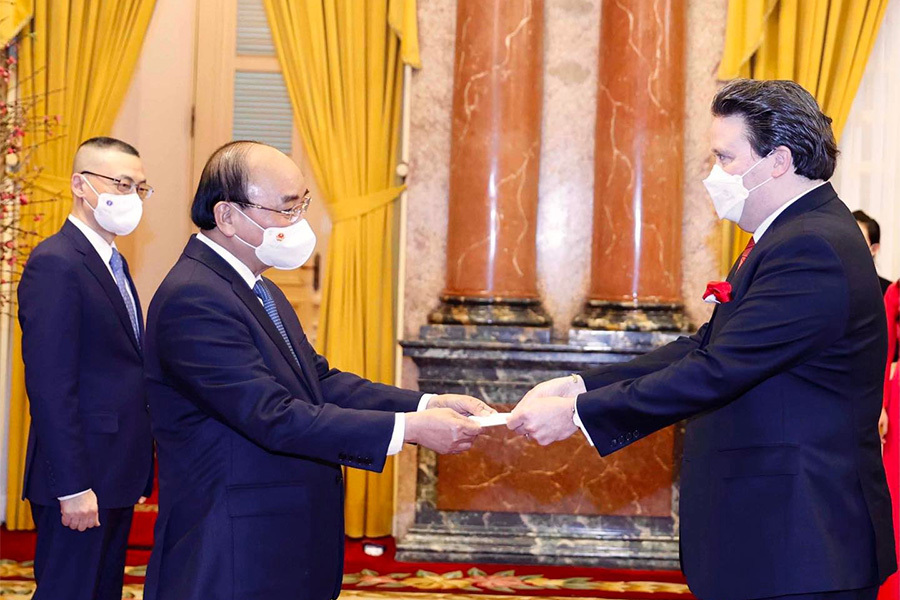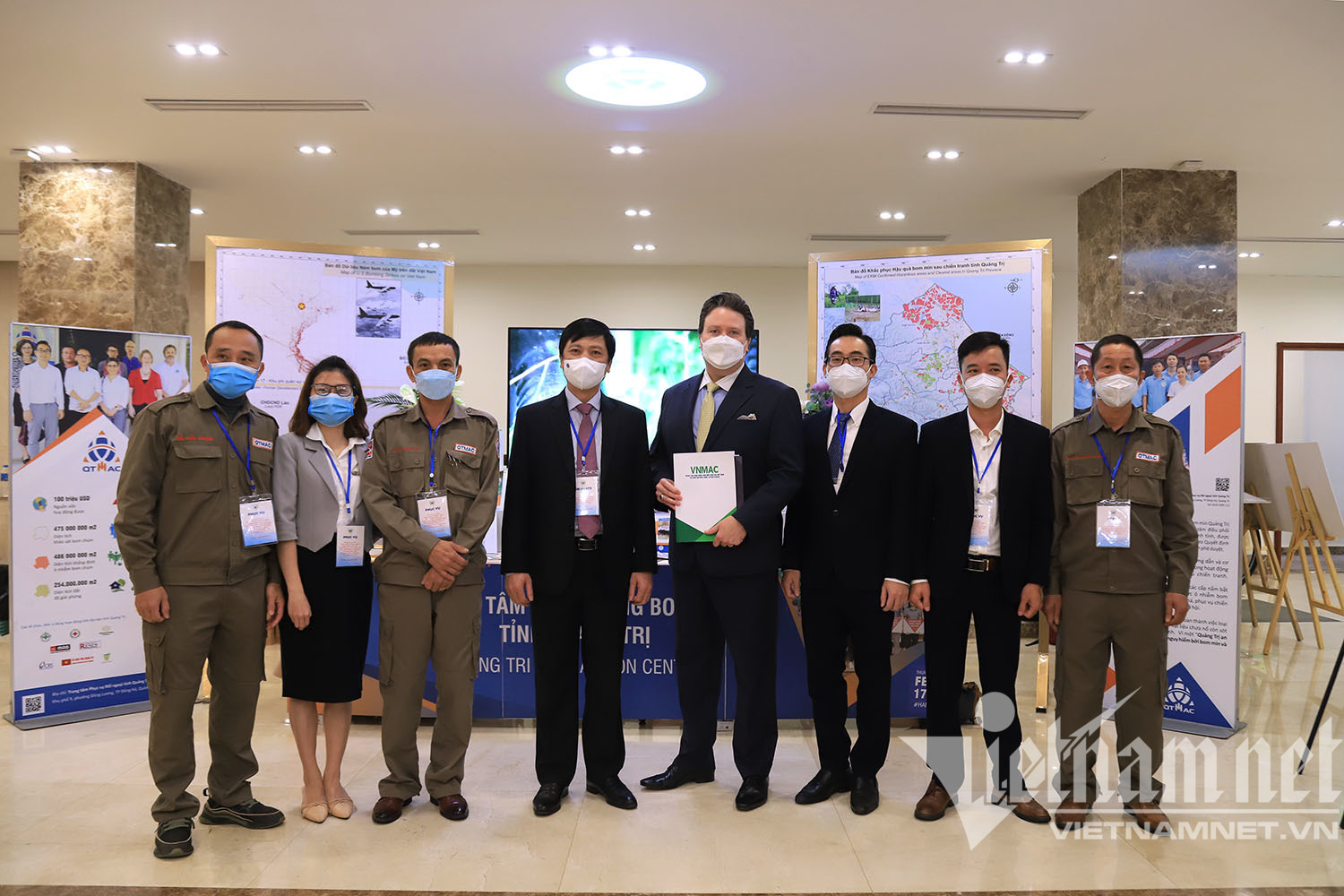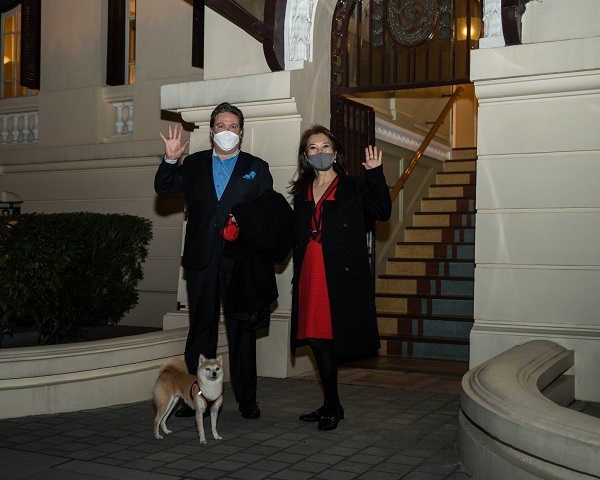Before being appointed as the US Ambassador to Vietnam, you attended a hearing before the US Senate on promoting US-Vietnam relations. What are the fields of cooperation that you are interested in?
- I have to think for a moment about the priorities I raised at the hearing. However, there is a special point about the relationship between the two countries, which is a very broad relationship, developing in all aspects such as security, trade, investment, climate change, health, people-to-people diplomacy, energy, science and technology….
And I am looking forward, eager to contribute to further enhancing the relationship between the US and Vietnam in all fields.
Since we have had excellent cooperation in all areas as I have just mentioned, I think it is time to upgrade the relationship between the two countries.
 |
|
|
The US has just announced the new Indo-Pacific strategy, what is Vietnam's role in this strategy?
- The US recently launched the Indo-Pacific strategy, showing that we appreciate Vietnam and its important role in the world.
If you look at the five pillars of the Indo-Pacific strategy, you can see several aspects: freedom and openness, connectivity, prosperity, increased security and resilience of the region. We are cooperating with Vietnam in all of these aspects.
The Indo-Pacific Strategy also outlines the future path of cooperation between the US and Vietnam.
Over the past two years, epidemic prevention has been one of the priorities in cooperation between Vietnam and the US. The US has donated more than 24 million doses of vaccines to Vietnam. Recently, the US CDC representative office in Southeast Asia was established in Hanoi. Could you talk more about this issue?
- We are very proud of our cooperation in the medical field with Vietnam, the two countries have a long history of cooperation in health. Vietnam and the US have cooperated in dealing with diseases such as HIV/AIDS and tuberculosis and now it is Covid-19.
The reason the US provides millions of doses of vaccines, ventilators and other support to Vietnam is not because we expect some kind of response from Vietnam, but we do it because it is the right thing to do and we care about the people of Vietnam.
 |
|
The US Ambassador presented his credentials to the Vietnamese President last week. |
You just attended the first meeting held by the Government of Vietnam as an Ambassador on the content of overcoming the consequences of war and clearing landmines. Could you please share with us about the prospects of cooperation in this field in the future?
- As you know, solving the remaining problems after the war is a key issue in the bilateral relationship as well as in the friendship between the two countries. Since 1993 we have granted $166 million for bomb and mine disarming efforts.
I said during the meeting: We are fully committed to these efforts. This is one of the reasons for the great success of cooperation between the US and Vietnam, with the national mine action center, the Vietnamese Ministry of Defense. Without the cooperation of these agencies, we would not be able to do what we are doing.
Another reason is the cooperation between the US and other countries and international organizations such as UNDP, Japan, Korea, UK, Norway, and Iceland and we are ready to continue that cooperation with international partners and the Vietnamese Government.
The US has supported this effort in Quang Tri province and achieved many results, so we will continue to expand it in Quang Binh province.
Recently, I talked to Vice Chairman of Quang Tri People's Committee Hoang Nam about the work in the near future. We are delighted and look forward to continuing our cooperation.
 |
|
The US Ambassador, officials of Quang Tri province and members of the National Mine Action Center. |
How did you feel when you were appointed as the US Ambassador to Vietnam? How did your family react when you officially became the new US ambassador to Vietnam, as they will come and live here with you for about three years?
- Vietnam is not strange to us. We lived here for three years before. And we're so happy and excited to be back, I feel great that I've been appointed as the ambassador.
We are happy to see a lot of changes in Vietnam, but many things remain the same as the warm hearts of the Vietnamese people welcome us back. So, we are very happy.
|
Marc Knapper, a member of the Senior Foreign Service of the US Department of State, has served as Deputy Assistant Secretary for the Republic of Korea and Japan since August, 2018. Prior to taking on the post, he was in Seoul as Chargé d’Affaires from 2017 to 2018 and Deputy Chief of Mission from 2015 to 2016. Earlier assignments include Director for India Affairs, Director for Japanese Affairs, and multiple postings in Tokyo, Seoul, Hanoi, and Baghdad. The diplomat has twice worked in the Democratic People’s Republic of Korea, including in 1997 as the State Department representative to the Spent Fuel Team at the Yongbyon nuclear facility and in 2000 as a member of the advance team for then-Secretary of State Madeleine Albright’s visit to Pyongyang. Ambassador Knapper is a recipient of the Secretary of State’s Distinguished Service Award, the nation’s highest diplomatic honour. In addition, he has also received a Presidential Meritorious Service Award and the Department of State’s Linguist of the Year Award. He is a summa cum laude graduate of Princeton University and studied at the University of Tokyo as part of Middlebury College’s intensive Japanese programme. This is along with time at the Army War College and the Massachusetts Institute of Technology’s Seminar XXI programme, with Ambassador Knapper able to speak Korean, Japanese, and Vietnamese. Knapper's hometown is the city of Los Angeles. He is married to Mrs. Suzuko Knapper and they have a 21-year-old son. |
Tran Thuong

New US Ambassador arrives in Vietnam
New US Ambassador to Vietnam Marc Knapper arrived in Hanoi on January 27, with him and his family now undergoing quarantine.